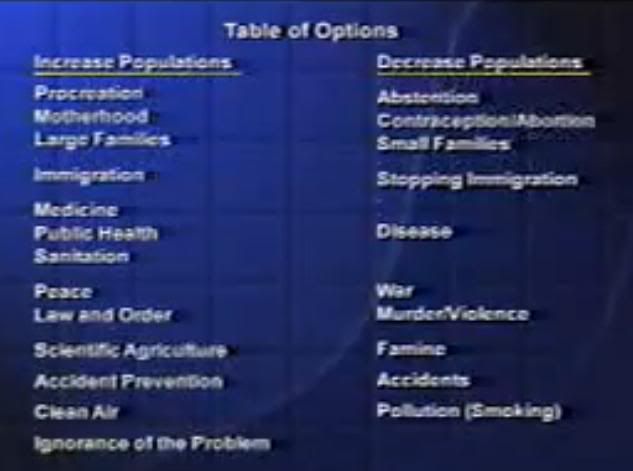It just didn't sound to me as if Bartlett was promoting those options. I have to agree with Nordic that you might be reading them into Bartlett's personal views. Again, Bartlett did express his distaste for war and killing. Disease, famine? "Is that what you want?" he asks the students.lupercal wrote:[Bartlett's] "options" include "stopping immigration," "disease," "war," "famine," and "polution." I would not call this a progressive agenda.
Bartlett might favor fewer immigrants, but I'm not ready to crucify him just for that.
My point exactly! PRI uses some valid data, but they seem content with the corporate status quo of a suck-it-dry petroleum-based economy (their Food video reflects that, and they are, after all, right-wing Christians). What does the suck-it-dry petroleum-based economy give us?---I hear there's a bad oil leak in the Gulf of Mexico.There is no mention of petroleum
Modern agriculture does use a lot of petroleum, for fuel and 'chemical' fertilizers. And Monsanto/ADM-style agribiz, if they get their way, will mean more petroleum-based fertilizers and pesticides, more tractors, more combines etc., more GM foods, and, perhaps worst, a legal corporate monopoly on the world's food, using terminator seeds and high-priced lawyers.
So I'm leery about what I've called "corporate solutions," while PRI is okey-dokey with them. If Big Ag is investing heavily in safe and clean alternative fuels, fertilizers and farming methods, I haven't heard much about it. (And I almost believed BP's pretty ads over the last few years touting their commitment to "green" practices.)
A note about the example of Brazil-- Brazil is being smart. They're powering vehicles with sugar cane alcohol, on a wide scale. "Drill, baby, drill!" sounds less smart.
Good enough, otherwise. I accept that Bartlett's focus on overpopulation is off-target. Though as far as I can see, neither set really presents a balanced equation.
Lastly, thanks for making me think harder!



